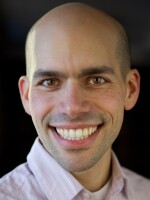ARI DANIEL, BYLINE: Health professionals in Haiti don't feel safe going to work these days. The last time this OB-GYN showed up at her hospital in the capital of Port-au-Prince was December.
UNIDENTIFIED OB-GYN: I stopped going to the hospital. You know there are gangs everywhere. The gangs are powerful.
DANIEL: NPR isn't identifying her because she fears being kidnapped. And there's good reason for her to be afraid. Gangs have been targeting health workers and other professionals, kidnapping them and, in many cases, demanding ransom.
UNIDENTIFIED OB-GYN: They took two of my colleagues. They took two just last December.
DANIEL: Ultimately, the gangs released her colleagues. But she says they were traumatized, and that was the final straw for her. That's when she stopped going to work. Other doctors and nurses are doing the same, opting out by staying home or leaving the country altogether. This doctor says there isn't just a staffing shortage now at hospitals and clinics, though.
UNIDENTIFIED OB-GYN: You have lack of oxygen, lack of electricity, lack of supply, like medication.
DANIEL: So when people do manage to get to a health center, they risk not receiving the care they need. She says that's what happened to her pregnant cousin. The woman showed up to the nearest hospital a week ago to deliver her baby, but it ended tragically.
UNIDENTIFIED OB-GYN: That makes me a little sad because my cousin died. Sorry. They could not do the C-section. She died.
DANIEL: Because there wasn't enough electricity or oxygen to do the C-section. Her baby died too.
UNIDENTIFIED OB-GYN: OK. Let's move on.
DANIEL: It's not just Port-au-Prince. Health care is embattled nationwide. Hospitals have closed. Rural areas, she says, are a bit safer, but they're having trouble getting medications, many of which are stuck inside the capital, all this at a time when the U.N. reports that more than 350,000 people are internally displaced and that gangs are using rape and sexual violence as a weapon to instill fear.
CARLOTTA PIANIGIANI: People are living in extreme vulnerability.
DANIEL: Carlotta Pianigiani is an emergency coordinator with the Alliance for International Medical Action.
PIANIGIANI: They are living in camps. They are living in schools. They are sleeping under the sky. Sometimes they have, like, two latrines for 5,000 people.
DANIEL: Such conditions are ripe for the spread of disease. In central Haiti, Zanmi Lasante, the largest health care provider outside the government, is still managing to keep its emergency care running 24/7. But the group's executive director, Dr. Wesler Lambert, worries that could give out at any moment.
WESLER LAMBERT: If we don't get fuel, the hospital will stop. So we have to buy fuel at double the usual price to keep the hospital running.
DANIEL: But even with fuel, medical procedures that should be straightforward are anything but.
LAMBERT: I had a call from a friend seeking care for a family member. They wanted blood transfusions for him.
DANIEL: Family members were willing to donate blood, but it wasn't safe enough for them to travel to the hospital for the transfusion. As one Haitian doctor wrote me, in his decades of work there, he's never seen the situation this bad. He said, quote, "this is not a time to get sick." For NPR News, I'm Ari Daniel. Transcript provided by NPR, Copyright NPR.
NPR transcripts are created on a rush deadline by an NPR contractor. This text may not be in its final form and may be updated or revised in the future. Accuracy and availability may vary. The authoritative record of NPR’s programming is the audio record.


